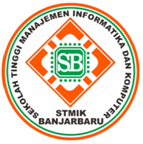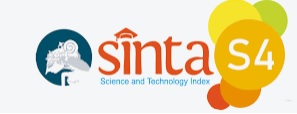Analisis Performa Siswa dalam E-Learning
Abstract
-
References
S. Hana and A. Wibawa, “E-Learning Telah Menjadi Platform Pembelajaran Yang Dominan di Era Society 5.0,” Jurnal Inovasi Teknologi dan Edukasi Teknik, vol. 2, no. 10, pp. 481–491, Oct. 2022, doi: 10.17977/um068v2i102022p481-491.
U. Manav, R. Gupta, and R. Kamra, “Optimized Lms: a Solution to Online Learning in Covid-19,” International Journal of Innovative Research in Computer Science & Technology, vol. 8, no. 3, pp. 144–147, May 2020, doi: https://doi.org/10.21276/ijircst.2020.8.3.20.
Z. Zahid, M. A. Zahoor, F. Khan, and E. Ali, “LMS NUST concurrent session impact and solution,” in 2016 13th International Bhurban Conference on Applied Sciences and Technology (IBCAST), IEEE, Jan. 2016, pp. 305–311. Accessed: Jan. 30, 2025. [Online]. Available: https://doi.org/10.1109/ibcast.2016.7429895
A. S. Ajiatmojo, “Penggunaan E-learning Pada Proses Pembelajaran Daring,” TEACHING : Jurnal Inovasi Keguruan dan Ilmu Pendidikan, vol. 1, no. 3, pp. 229–235, Sep. 2021, doi: 10.51878/teaching.v1i3.525.
A. K. Ahmad, Sumarni, K. M. Rahayu, and S. Lisnawati, “Pembelajaran Berbasis E-Learning di Madrasah Dalam Peningkatan Kualitas Pendidikan: Kasus MTsN Al Azhar,” EDUKASI: Jurnal Penelitian Pendidikan Agama dan Keagamaan, vol. 21, no. 3, pp. 275–289, Dec. 2023, doi: 10.32729/edukasi.v21i3.1572.
S. Maloney et al., “Using LMS Log Data to Explore Student Engagement with Coursework Videos,” Online Learning (OLJ), vol. 26, no. 4, pp. 399–423, Dec. 2022, doi: 10.24059/olj.v26i4.2998.
M. Hussain, W. Zhu, W. Zhang, and S. M. R. Abidi, “Student Engagement Predictions in an e-Learning System and Their Impact on Student Course Assessment Scores,” Computational Intelligence and Neuroscience, vol. 2018, pp. 1–21, Oct. 2018, doi: 10.1155/2018/6347186.
N. A. Johar, S. N. Kew, Z. Tasir, and E. Koh, “Learning Analytics on Student Engagement to Enhance Students’ Learning Performance: A Systematic Review,” Sustainability, vol. 15, no. 10, pp. 7849–7874, May 2023, doi: 10.3390/su15107849.
B. Hollister, P. Nair, S. Hill-Lindsay, and L. Chukoskie, “Engagement in Online Learning: Student Attitudes and Behavior During COVID-19,” Frontiers in Education, vol. 7, pp. 1–16, May 2022, doi: 10.3389/feduc.2022.851019.
B. C. E. Oguguo, F. A. Nannim, J. J. Agah, C. S. Ugwuanyi, C. U. Ene, and A. C. Nzeadibe, “Effect of learning management system on Student’s performance in educational measurement and evaluation,” Education and Information Technologies, vol. 26, no. 2, pp. 1471–1483, Sep. 2020, doi: 10.1007/s10639-020-10318-w.
Y. Yang, W. Nie, W. Zheng, and C. Qiao, “Analyzing the Correlation between Seat Selection, Seat Change, and Academic Performance among University Students,” Authorea, Inc., Sep. 2020, pp. 1–16 . Accessed: Jan. 30, 2025. [Online]. Available: https://doi.org/10.22541/au.160122424.40554421
A. Muslem, U. Kasim, F. Mustafa, S. S. Fitriani, and M. Rahmi, “The Correlation Between the Use of Online Learning Platforms and Undergraduate Students’ Self-Efficacy,” Journal of Language and Education, vol. 10, no. 1, pp. 83–100, Mar. 2024, doi: 10.17323/jle.2024.17606.
N. P. R. Arnani and A. Fitri, “Interaksi Mahasiswa pada Pembelajaran Jarak Jauh,” Indo-MathEdu Intellectuals Journal, vol. 5, no. 1, pp. 1159–1171, Feb. 2024, doi: 10.54373/imeij.v5i1.774.
W. Anggraeni, D. Wahyudin, and S. Mulyani, “Pengaruh Model Discovery Learning Berbantuan Komik Digital Flip Book dalam Upaya Meningkatkan Hasil Belajar IPS di Sekolah Dasar,” FONDATIA, vol. 7, no. 3, pp. 731–746, Sep. 2023, doi: 10.36088/fondatia.v7i3.3886.
D. Irawan and Y. Setiawan, “Analisis Interaksi Pembelajaran Online Siswa dan Guru Melalui Google Classroom: English for Learner,” Edu Cendikia: Jurnal Ilmiah Kependidikan, vol. 1, no. 2, pp. 74–80, Nov. 2021, doi: 10.47709/educendikia.v1i2.1167.
A. H. Nabila, H. H. Mahendra, and F. F. Pratama, “Analisis Interaksi Sosial Dalam Pembelajaran Siswa Kelas v Sdn Cilamajang,” ELEMENTARY: Jurnal Inovasi Pendidikan Dasar, vol. 4, no. 4, pp. 203–209, Oct. 2024, doi: 10.51878/elementary.v4i4.3305.
N. Marjaya, I.G.A. Wesnawa, and G.A. Yuniarta, “Pengaruh Pemberian Konten Media Online Dalam Pembelajaran Ekonomi Terhadap Motivasi Belajar Dan Hasil Belajar,” Jurnal Pendidikan IPS Indonesia, vol. 5, no. 2, pp. 129–140, Nov. 2021, doi: 10.23887/pips.v5i2.428.
S. S. Kusumawardani and Syukron Abu Ishaq Alfarozi, “Kajian Penggunaan Data Log Mahasiswa untuk Berbagai Permasalahan Analisis Pembelajaran,” Jurnal Nasional Teknik Elektro dan Teknologi Informasi, vol. 9, no. 4, pp. 365–374, Dec. 2020, doi: 10.22146/jnteti.v9i4.779.
A. Traxler, A. Gavrin, and R. Lindell, “Networks identify productive forum discussions,” Physical Review Physics Education Research, vol. 14, no. 2, pp. 1–4, Sep. 2018, doi: 10.1103/physrevphyseducres.14.020107.
M. Ardianti, O. D. Nurhayati, and B. Warsito, “Model Prediksi Kinerja Siswa Berdasarkan Data Log LMS Menggunakan Ensemble Machine Learning,” JST (Jurnal Sains dan Teknologi), vol. 12, no. 3, pp. 562–571, Jan. 2024, doi: 10.23887/jstundiksha.v12i3.59816.
S. A. Rajagukguk, “Tinjauan Pustaka Sistematis: Prediksi Prestasi Belajar Peserta Didik Dengan Algoritma Pembelajaran Mesin,” Jurnal Sains, Nalar, dan Aplikasi Teknologi Informasi, vol. 1, no. 1, pp. 22–32, Aug. 2021, doi: 10.20885/snati.v1i1.4.
S. A. A. Kharis and A. H. A. Zili, “Learning Analytics dan Educational Data Mining pada Data Pendidikan,” Jurnal Riset Pembelajaran Matematika Sekolah, vol. 6, no. 1, pp. 12–20, Mar. 2022, doi: 10.21009/jrpms.061.02.
A. Fauzi, A. Nikmah Rahmatih, and L. Feni Haryati, “Analisis Efektivitas Model Pembelajaran Blended Learning Ditinjau Dari Hasil Belajar Geometri Mahasiswa Guru Sekolah Dasar,” Journal of Elementary Education, vol. 05, no. 01, pp. 43–52, Jan. 2022, doi: https://doi.org/10.22460/collase.v5i1.9962.
A. S. Lestari, “Analysis of the Implementation of e-Learning in Stain Sultan Qaimuddin Kendari Southeast Sulawesi,” International Journal of Information and Education Technology, vol. 6, no. 6, pp. 453–456, 2016, doi: 10.7763/ijiet.2016.v6.731.
Y. F. Ilmi, “Efektivitas Penggunaan Aplikasi Quizizz Sebagai Kuis Interaktif Terhadap Kemampuan Kognitif Dan Motivasi Belajar Mahasiswa,” Progress: Jurnal Pendidikan, Akuntansi dan Keuangan, vol. 6, no. 1, pp. 15–23, Mar. 2023, doi: 10.47080/progress.v6i1.2507.
E. E. Putri, S. Purwandari, and P. M. Triana, “Meningkatkan Keterampilan Berbicara Bahasa Jawa melalui Permainan Dolanan Anak,” Asatiza: Jurnal Pendidikan, vol. 5, no. 1, pp. 110–118, Jan. 2024, doi: 10.46963/asatiza.v5i1.1406.
Q. Zhang, J. Lu, and G. Zhang, “Recommender Systems in E-learning,” Journal of Smart Environments and Green Computing, vol. 1, pp. 76–89, 2021, doi: http://dx.doi.org/10.20517/jsegc.2020.06.
L. S. Chikileva, A. A. Chistyakov, M. V. Busygina, A. I. Prokopyev, E. V. Grib, and D. N. Tsvetkov, “A review of empirical studies examining the effects of e-learning on university students’ academic achievement,” Contemporary Educational Technology, vol. 15, no. 4, pp. 1–14, Oct. 2023, doi: 10.30935/cedtech/13418.
A. Moubayed, M. Injadat, A. Shami, and H. Lutfiyya, “Relationship Between Student Engagement and Performance in E-Learning Environment Using Association Rules,” in 2018 IEEE World Engineering Education Conference (EDUNINE), IEEE, Mar. 2018, pp. 1–6. Accessed: Feb. 06, 2025. [Online]. Available: https://doi.org/10.1109/edunine.2018.8451005
Muh. R. Mattawang and E. Syarif, “Dampak Penggunaan Kahoot Sebagai Platform Gamifikasi Dalam Proses Pembelajaran,” Journal of Learning and Technology, vol. 2, no. 1, pp. 33–42, Jun. 2023, doi: 10.33830/jlt.v2i1.5843.
A. A. Gasmi, “Through the Lens of Students: How Online Discussion Forums Affect Students’ Learning,” International Journal of Technology in Education, vol. 5, no. 4, pp. 669–684, Oct. 2022, doi: 10.46328/ijte.291.
H. Lestari, A. Irma Purnamasari, and T. Suprapti, “Penerapan Data Mining Menggunakan Algoritma C4.5 Untuk Prediksi Prestasi Belajar Siswa Di Mts Yamuallim Panongan,” JATI (Jurnal Mahasiswa Teknik Informatika), vol. 8, no. 2, pp. 1992–1999, Apr. 2024, doi: 10.36040/jati.v8i2.8312.
M. Firat, A. Öztürk, İ. Güneş, E. Çolak, M. Beyaz, and K. Büyük, “How e-learning engagement time affects academic achievement in e-learning environments. A large-scale study of open and distance learners,” Open Praxis, vol. 11, no. 2, p. 129, Jun. 2019, doi: 10.5944/openpraxis.11.2.920.
M. Murray et al., “Association Between E-learning System Usage and Medical Student Academic Performance at the Kilimanjaro Christian Medical University College in Moshi, Tanzania,” MedEdPublish, vol. 9, no. 1, pp. 1–12, 2020, doi: 10.15694/mep.2020.000278.1.
D. Gašević, S. Dawson, T. Rogers, and D. Gasevic, “Learning analytics should not promote one size fits all: The effects of instructional conditions in predicting academic success,” The Internet and Higher Education, vol. 28, pp. 68–84, Jan. 2016, doi: 10.1016/j.iheduc.2015.10.002.
T. M. S. Manurung, “Pengaruh Motivasi dan Perilaku Belajar Terhadap Prestasi Akademik Mahasiswa,” JAS-PT Jurnal Analisis Sistem Pendidikan Tinggi, vol. 1, no. 1, p. 17, Oct. 2017, doi: 10.36339/jaspt.v1i1.36.
How To Cite This :
Refbacks
- There are currently no refbacks.










